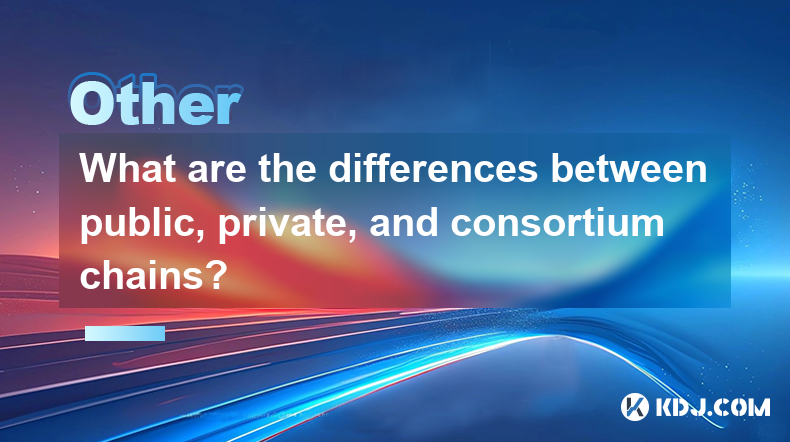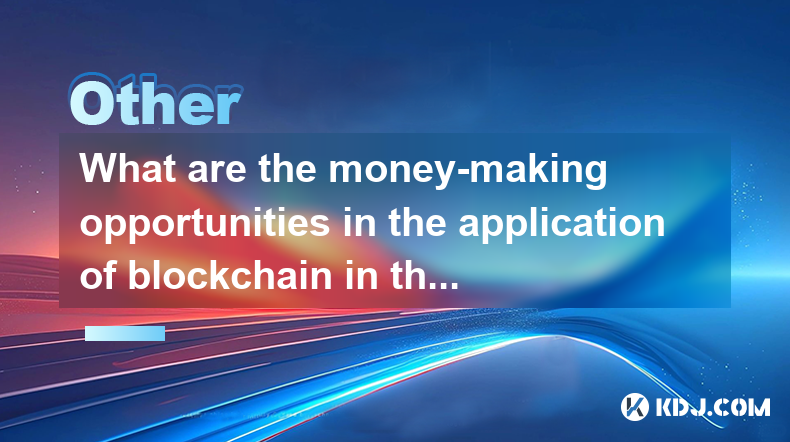-
 Bitcoin
Bitcoin $76,444.7530
-3.77% -
 Ethereum
Ethereum $1,473.8355
-5.46% -
 Tether USDt
Tether USDt $0.9991
-0.08% -
 XRP
XRP $1.7965
-5.51% -
 BNB
BNB $553.4919
-0.36% -
 USDC
USDC $0.9999
-0.02% -
 Solana
Solana $105.2981
-1.74% -
 TRON
TRON $0.2303
0.81% -
 Dogecoin
Dogecoin $0.1422
-4.62% -
 Cardano
Cardano $0.5587
-4.41% -
 UNUS SED LEO
UNUS SED LEO $8.9866
1.01% -
 Toncoin
Toncoin $2.9933
-4.74% -
 Chainlink
Chainlink $10.9113
-4.81% -
 Stellar
Stellar $0.2215
-4.76% -
 Avalanche
Avalanche $16.1163
-3.29% -
 Sui
Sui $1.9371
-3.89% -
 Shiba Inu
Shiba Inu $0.0...01065
-6.69% -
 Hedera
Hedera $0.1469
-3.29% -
 MANTRA
MANTRA $6.2058
-1.53% -
 Dai
Dai $1.0000
0.01% -
 Bitcoin Cash
Bitcoin Cash $269.3457
-2.08% -
 Polkadot
Polkadot $3.3773
-5.87% -
 Litecoin
Litecoin $69.2204
-2.50% -
 Ethena USDe
Ethena USDe $0.9986
-0.01% -
 Bitget Token
Bitget Token $4.0180
-3.25% -
 Pi
Pi $0.5649
-4.50% -
 Hyperliquid
Hyperliquid $11.1928
-2.80% -
 Monero
Monero $195.3885
-4.41% -
 OKB
OKB $50.9235
-0.59% -
 Uniswap
Uniswap $4.7688
-6.95%
What are the differences between public, private, and consortium chains?
Public blockchains are decentralized and transparent but slower, while private blockchains are centralized and faster but lack transparency. Consortium blockchains offer a hybrid approach, balancing decentralization and control.
Mar 03, 2025 at 07:48 pm

Key Points:
- Public Blockchains: Highly decentralized, permissionless, transparent, and secure, but can be slower and more expensive. Examples include Bitcoin and Ethereum.
- Private Blockchains: Centralized, permissioned, offer greater control and speed, but lack transparency and decentralization. Often used for internal business applications.
- Consortium Blockchains: Hybrid approach combining elements of public and private chains. Multiple organizations share control, offering a balance between decentralization and control. Examples include R3 Corda and Hyperledger Fabric.
What are the differences between public, private, and consortium chains?
The cryptocurrency landscape boasts a variety of blockchain architectures, each with its unique strengths and weaknesses. Understanding the differences between public, private, and consortium blockchains is crucial for navigating this complex ecosystem. The core distinctions lie in their permissioning models, levels of decentralization, and the trade-offs between security, speed, and control.
Public Blockchains: The Open Highway
Public blockchains, such as Bitcoin and Ethereum, are characterized by their open and permissionless nature. Anyone can participate, contribute to the network, and access the blockchain's data. This open access fosters transparency and decentralization, making them inherently resistant to censorship and single points of failure. However, this comes at a cost. The decentralized nature can lead to slower transaction speeds and higher fees during periods of high network activity. The consensus mechanisms, often Proof-of-Work (PoW) or Proof-of-Stake (PoS), ensure the security and integrity of the blockchain.
Private Blockchains: The Controlled Environment
In stark contrast to public blockchains, private blockchains are permissioned systems. Access is restricted to authorized participants, typically members of a specific organization or group. This centralized control allows for faster transaction processing and greater control over data privacy. However, the lack of transparency and decentralization raises concerns about trust and censorship. A single entity or a small group holds significant influence over the network, potentially compromising its resilience and security. Private blockchains are commonly used for internal business applications, supply chain management, and other scenarios requiring high levels of confidentiality and control.
Consortium Blockchains: The Collaborative Approach
Consortium blockchains represent a middle ground, blending elements of both public and private networks. They are permissioned, meaning access is controlled by a pre-defined group of organizations, often referred to as "nodes". This shared governance model offers a balance between decentralization and control. Multiple organizations participate in the network's operation and validation of transactions, enhancing trust and reducing the risk of a single point of failure. This collaborative approach also allows for greater scalability and efficiency compared to fully public chains. Examples include R3 Corda and Hyperledger Fabric, each designed to facilitate secure and efficient collaboration between multiple entities.
Permissioning Models: The Key Differentiator
The fundamental difference between these blockchain types lies in their permissioning models. Public blockchains are permissionless, meaning anyone can join and participate. Private blockchains are permissioned, requiring explicit authorization for participation. Consortium blockchains fall between these extremes, granting permission to a select group of organizations. This permissioning model directly impacts the level of decentralization, security, and control offered by each type of blockchain.
Decentralization: A Spectrum of Control
Decentralization is another crucial distinction. Public blockchains are highly decentralized, with no single entity controlling the network. Private blockchains, on the other hand, are centralized, with control residing in the hands of a single entity or a small group. Consortium blockchains occupy a middle ground, achieving a degree of decentralization through shared governance amongst participating organizations. This difference in decentralization significantly impacts the resilience, security, and censorship resistance of each blockchain type.
Transaction Speed and Costs: Balancing Efficiency and Security
Transaction speed and costs vary significantly across different blockchain types. Public blockchains can experience slower transaction speeds and higher fees, particularly during periods of high network activity. Private blockchains, due to their centralized nature, typically offer faster transaction speeds and lower fees. Consortium blockchains aim to strike a balance, providing improved efficiency compared to public chains while maintaining a level of decentralization that enhances security and trust.
Use Cases: Tailoring the Blockchain to the Need
The choice of blockchain architecture depends heavily on the specific use case. Public blockchains are well-suited for applications requiring high transparency, decentralization, and censorship resistance, such as cryptocurrencies and decentralized applications (dApps). Private blockchains are ideal for scenarios where speed, control, and data privacy are paramount, such as internal business processes and supply chain management. Consortium blockchains offer a flexible solution for applications requiring collaboration between multiple organizations while maintaining a degree of security and control.
Frequently Asked Questions:
Q: Can a private blockchain be used for a cryptocurrency?
A: Technically, yes, but it wouldn't be a cryptocurrency in the traditional sense. The lack of decentralization and open participation would negate key features like censorship resistance and wide adoption.
Q: Is a consortium blockchain more secure than a public blockchain?
A: It depends. A well-designed consortium blockchain can be very secure due to shared governance and controlled access. However, a vulnerability exploited by a single participant could compromise the entire network. Public blockchains benefit from broader distribution of trust, making them more resilient to individual attacks.
Q: What are the advantages of a public blockchain over a private one?
A: Public blockchains offer greater transparency, decentralization, and censorship resistance. They are more secure against single points of failure, though potentially slower and more expensive.
Q: Which type of blockchain is best for a large-scale enterprise application?
A: This depends on the specific requirements. Consortium blockchains often offer a suitable balance between performance, control, and security for large-scale enterprise applications requiring collaboration between multiple organizations. Private blockchains may be preferred if high confidentiality and centralized control are prioritized.
Q: Can a consortium blockchain be used for decentralized finance (DeFi)?
A: While possible, it would likely be a limited version of DeFi. The permissioned nature restricts open participation and the free flow of capital which are essential characteristics of the DeFi ecosystem. Public blockchains are better suited for the full spectrum of DeFi applications.
Disclaimer:info@kdj.com
The information provided is not trading advice. kdj.com does not assume any responsibility for any investments made based on the information provided in this article. Cryptocurrencies are highly volatile and it is highly recommended that you invest with caution after thorough research!
If you believe that the content used on this website infringes your copyright, please contact us immediately (info@kdj.com) and we will delete it promptly.
- "Cardano (ADA) Price Could Dip Below $0.60, Following Previous Market Cycle"
- 2025-04-09 05:10:12
- BONK, the well-known meme coin, has risen over 35% in the last week, attracting meme coin investors in the market. So, what caused this rally?
- 2025-04-09 05:10:12
- Bitcoin (BTC) Investors May Not Exactly Feel It, but BTC Has Been a Relatively Good Bet
- 2025-04-09 05:05:12
- Donald's Bitcoin (DONBTC) Could Turn Early Investors into Multi-Millionaires, Like Shiba Inu (SHIB) and Dogecoin (DOGE) Did
- 2025-04-09 05:05:12
- 6 Upcoming Kraken Listings That Could Be the Next Big Thing in Crypto
- 2025-04-09 05:00:13
- COTI Unveils New Privacy-Focused Blockchain to Reshape Web3 Transactions
- 2025-04-09 05:00:13
Related knowledge

Is the ranking of Chinese blockchain apps real and reliable?
Apr 04,2025 at 09:01pm
The ranking of Chinese blockchain apps has become a topic of interest for many in the cryptocurrency community, as it provides insights into the popularity and adoption of blockchain technology within China. However, the reliability and authenticity of these rankings are often questioned. This article aims to delve into the factors that influence these ...

What are the future development trends of blockchain game development?
Apr 03,2025 at 05:00am
Blockchain technology has revolutionized various industries, and gaming is no exception. As we look to the future, several trends are set to shape the development of blockchain games. These trends not only promise to enhance the gaming experience but also to integrate blockchain technology more seamlessly into the gaming ecosystem. Let's explore these t...

What are the high-return opportunities for blockchain investments?
Apr 05,2025 at 02:35pm
Blockchain technology has revolutionized the financial world, offering numerous high-return investment opportunities. These opportunities span various sectors within the cryptocurrency ecosystem, including cryptocurrencies, decentralized finance (DeFi), non-fungible tokens (NFTs), and blockchain startups. Each of these areas presents unique risks and re...

What are the maintenance costs of blockchain system development?
Apr 03,2025 at 06:07pm
The maintenance costs of blockchain system development are multifaceted and depend on various factors. These costs can include technical maintenance, security updates, infrastructure expenses, and personnel costs. Understanding these elements is crucial for anyone planning to develop or maintain a blockchain system. Technical MaintenanceTechnical mainte...

What are the money-making models of blockchain games?
Apr 04,2025 at 02:00pm
Blockchain games have emerged as a revolutionary way for players to earn real money while enjoying their favorite pastime. These games leverage the power of blockchain technology to create unique money-making models that benefit both the players and the developers. In this article, we will explore the various money-making models of blockchain games and ...

What are the money-making opportunities in the application of blockchain in the field of Internet of Things?
Apr 05,2025 at 10:35pm
The integration of blockchain technology with the Internet of Things (IoT) presents numerous money-making opportunities. Blockchain, with its decentralized and secure nature, can revolutionize how IoT devices interact, manage data, and conduct transactions. This article will explore various avenues where entrepreneurs, developers, and investors can capi...

Is the ranking of Chinese blockchain apps real and reliable?
Apr 04,2025 at 09:01pm
The ranking of Chinese blockchain apps has become a topic of interest for many in the cryptocurrency community, as it provides insights into the popularity and adoption of blockchain technology within China. However, the reliability and authenticity of these rankings are often questioned. This article aims to delve into the factors that influence these ...

What are the future development trends of blockchain game development?
Apr 03,2025 at 05:00am
Blockchain technology has revolutionized various industries, and gaming is no exception. As we look to the future, several trends are set to shape the development of blockchain games. These trends not only promise to enhance the gaming experience but also to integrate blockchain technology more seamlessly into the gaming ecosystem. Let's explore these t...

What are the high-return opportunities for blockchain investments?
Apr 05,2025 at 02:35pm
Blockchain technology has revolutionized the financial world, offering numerous high-return investment opportunities. These opportunities span various sectors within the cryptocurrency ecosystem, including cryptocurrencies, decentralized finance (DeFi), non-fungible tokens (NFTs), and blockchain startups. Each of these areas presents unique risks and re...

What are the maintenance costs of blockchain system development?
Apr 03,2025 at 06:07pm
The maintenance costs of blockchain system development are multifaceted and depend on various factors. These costs can include technical maintenance, security updates, infrastructure expenses, and personnel costs. Understanding these elements is crucial for anyone planning to develop or maintain a blockchain system. Technical MaintenanceTechnical mainte...

What are the money-making models of blockchain games?
Apr 04,2025 at 02:00pm
Blockchain games have emerged as a revolutionary way for players to earn real money while enjoying their favorite pastime. These games leverage the power of blockchain technology to create unique money-making models that benefit both the players and the developers. In this article, we will explore the various money-making models of blockchain games and ...

What are the money-making opportunities in the application of blockchain in the field of Internet of Things?
Apr 05,2025 at 10:35pm
The integration of blockchain technology with the Internet of Things (IoT) presents numerous money-making opportunities. Blockchain, with its decentralized and secure nature, can revolutionize how IoT devices interact, manage data, and conduct transactions. This article will explore various avenues where entrepreneurs, developers, and investors can capi...
See all articles






















































































